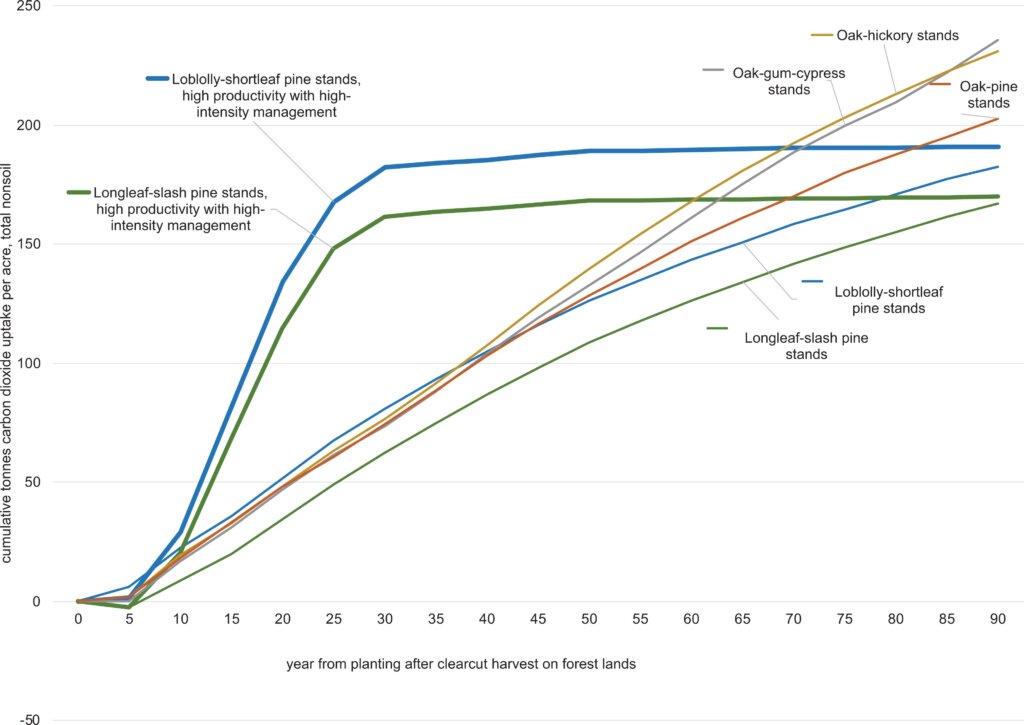Case Studies in the Environment is pleased to announce the winners of the 2022 Case Studies in the Environment Prize Competition.
Eligible submissions were judged for their ability to translate discrete case studies into broad, generalizable findings; for advancing a strong perspective and engaging narrative; for being accessible to their intended audiences; for addressing topics that are important or notable in their novelty, impact, or urgency; and which contribute to the teaching of environmental concepts to students and/or practitioners.
In the winning case study from the 2022 competition, “How Much New Forest Land Would it Take to Offset a Coal Plant’s Greenhouse Gas Emissions? An Engineering Case Study of Georgia’s Plant Scherer,” from Georgia Institute of Technology’s College of Engineering student Katrina Reinhart and Adjunct Assistant Professor Emily Grubert, the authors, using accessible engineering modeling, demonstrate that forestation as a means of decarbonization in some cases may be impractical due to the land footprint required. Their analysis thus forces students to challenge the idea that the energy transition currently taking place will be painless, and instead asks them to master the tools necessary to face our environmental problems.

The runners-up articles from the 2022 competition are “Participatory Mapping and Counter-Representations in Wind Energy Planning: A Radical Democracy Perspective,” from Stefanie Müller (Swiss Federal Research Institute WSL), Johannes Flacke (University of Twente, Netherlands) and Matthias Buchecker (Swiss Federal Research Institute WSL); and “Monitoring the Multiple Functions of Tropical Rainforest on a National Scale: An Overview From Papua New Guinea” (part of the Case Studies in the Environment special collection Papua New Guinea’s Forests), from PNG Forest Authority’s Ruth Turia and Gewa Gamoga, the Food and Agriculture Organization of the United Nations’ Hitofumi Abe and Lauri Vesa, Vojtech Novotny (New Guinea Binatang Research Centre), and Fabio Attorre (Sapienza University of Rome, Italy).
“It was incredibly difficult to choose the winning papers this year,” notes CSE Editor-in-Chief Jennifer Moore Bernstein. “There was an impressive diversity of topics, methods, and innovative interdisciplinary work.”
In addition to the top prize-winning case study, “the two Honorable Mentions also exemplify values core to the journal… through a participatory mapping initiative, survey research, and geospatial analysis, Stefanie Müller et al. use a critical geography approach to incorporate ‘radical democracy’ to resolve conflict in the energy transition planning process.” While in their tropical rainforest research, Ruth Turia et al. use Papua New Guinea as a case study on National Forest Inventories. “Based on primary research, they demonstrate the usefulness of their methodology on improving biodiversity conservation and forest management.”
Each of these prize-winning articles is free to read at online.ucpress.edu/cse.
The editors and publishing team behind Case Studies in the Environment extend their gratitude and thanks to everyone who submitted articles for the 2022 competition. For previous Case Studies in the Environment Prize Competition winners, please see our prize competition landing page.
Case Studies in the Environment is a journal of peer-reviewed case study articles and case study pedagogy articles. The journal informs faculty, students, researchers, educators, professionals, and policymakers on case studies and best practices in the environmental sciences and studies.
online.ucpress.edu/cse